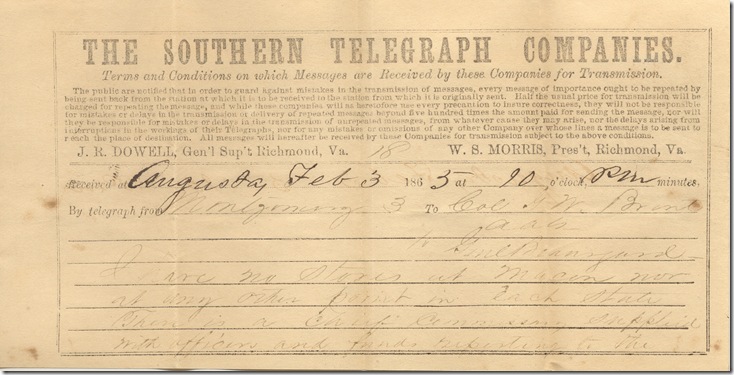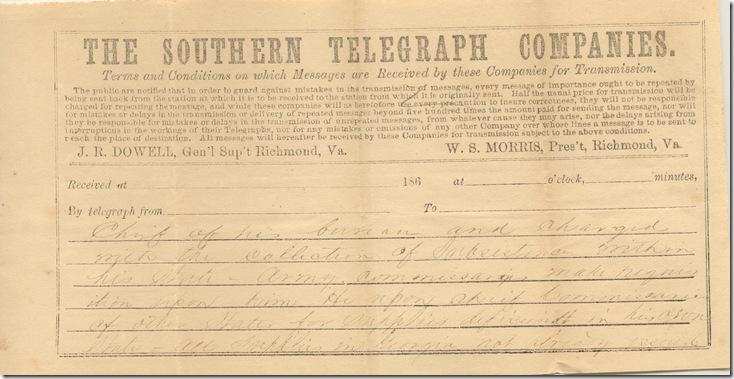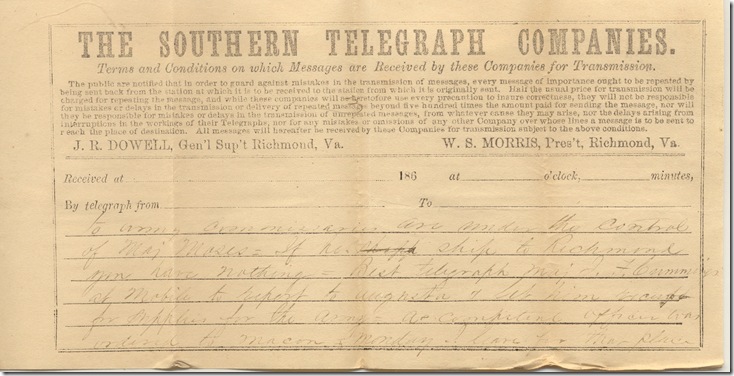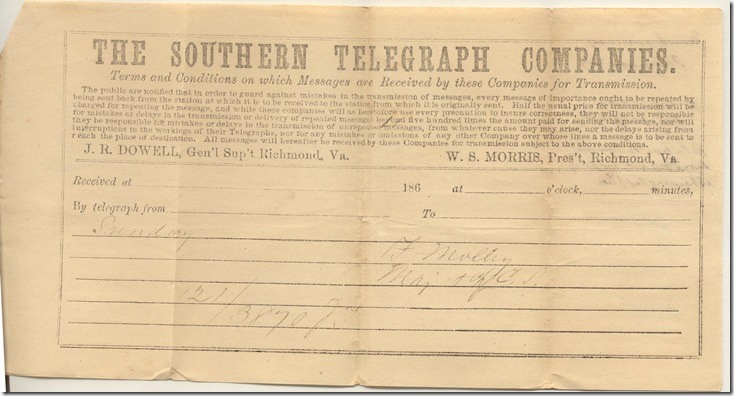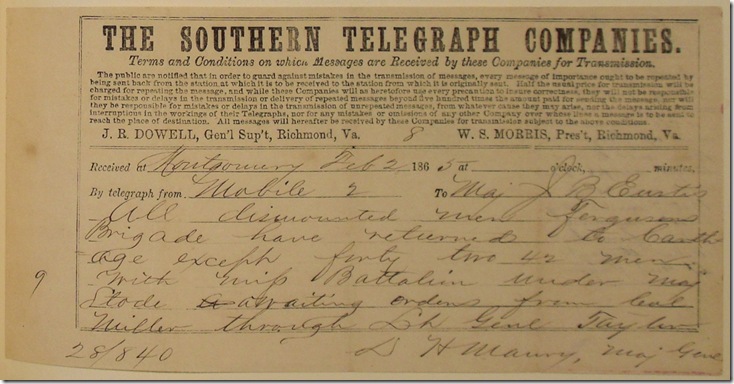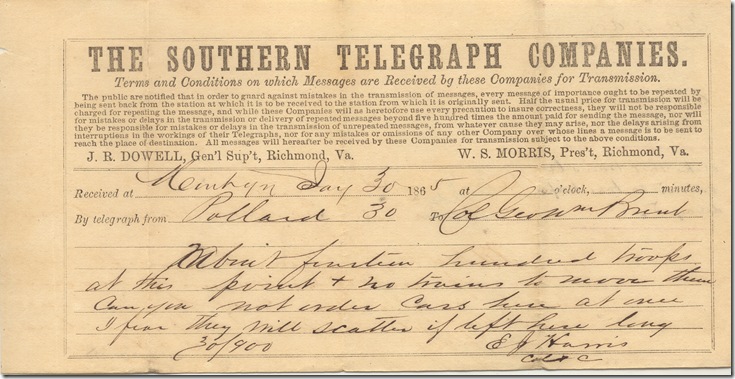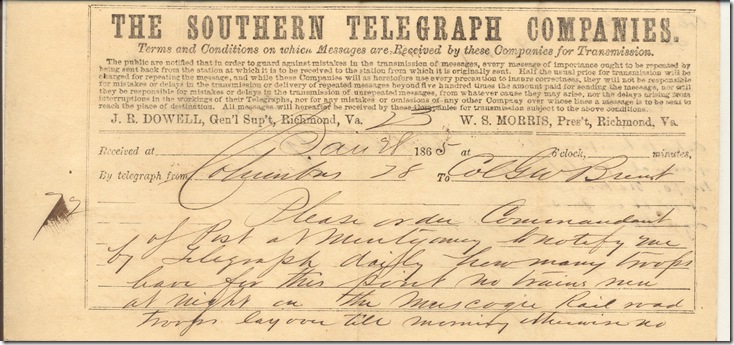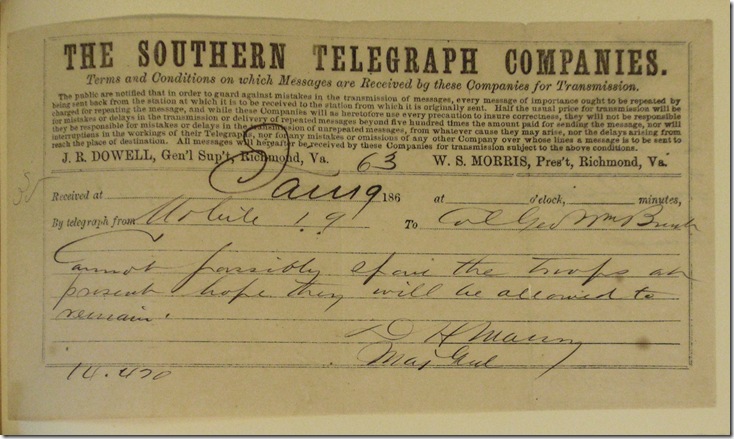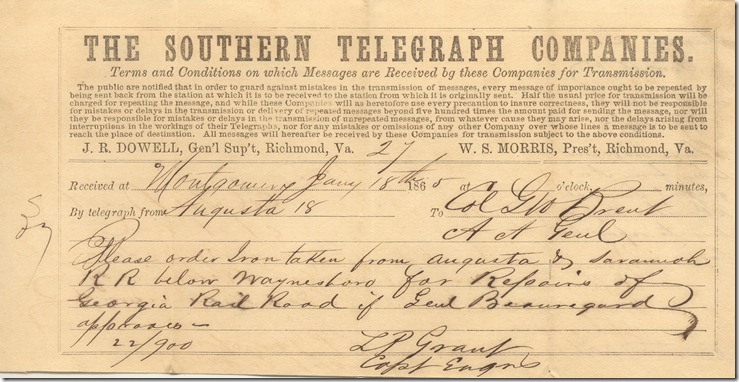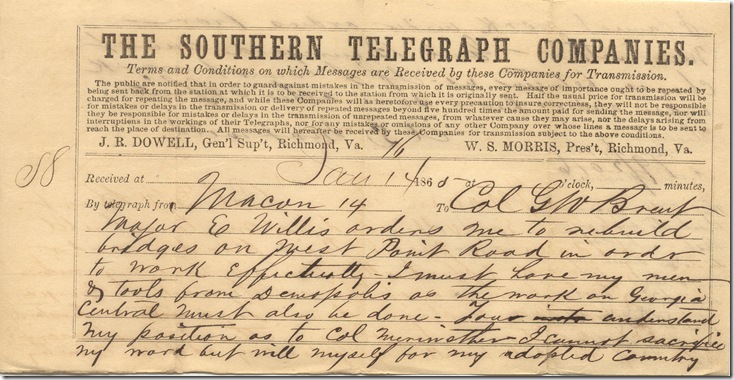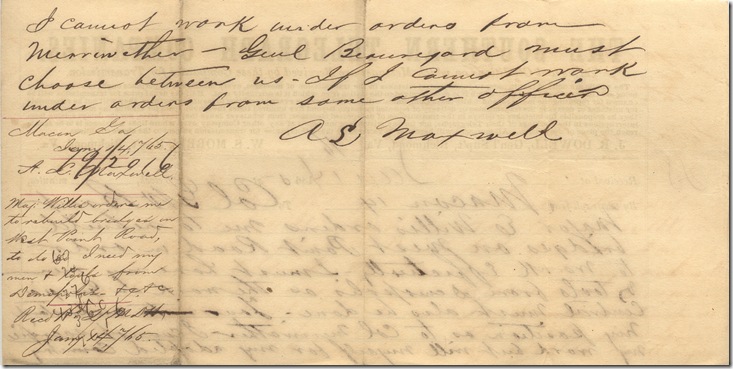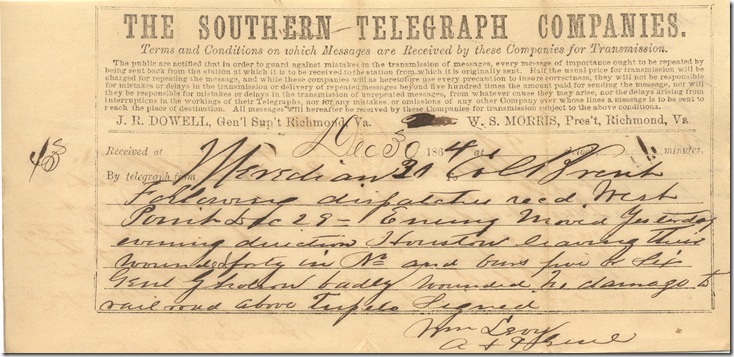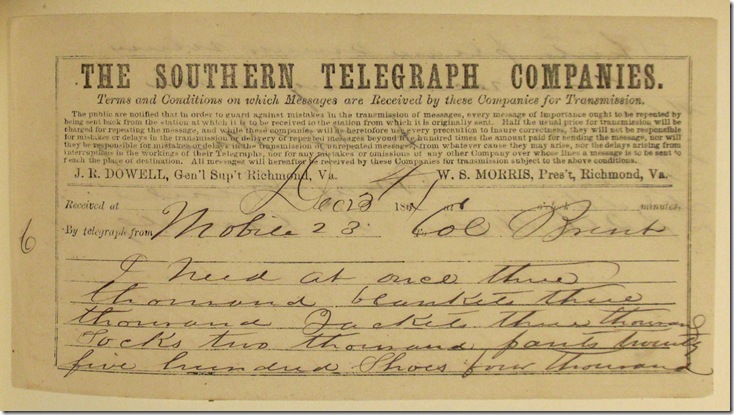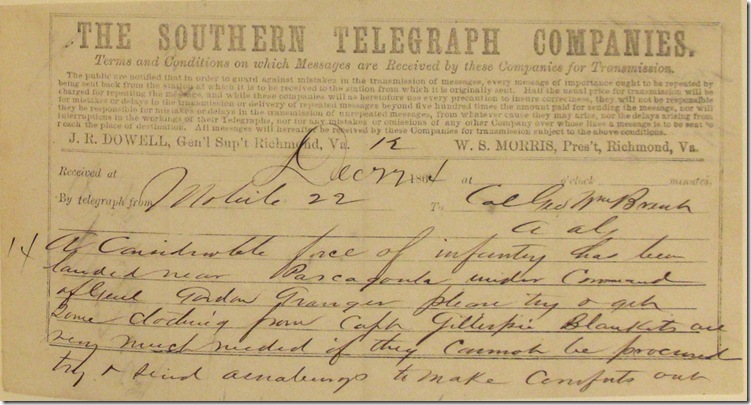Pierre Gustave Toutant Beauregard was a Louisiana-born general of the Confederate States Army. He had graduated second in his class from West Point in 1838 and was an admirer of Napoleon. He achieved fame early in the Civil War for commanding the Fort Sumter bombardment and as the victor of the first battle of Manassas. He later served in the Western Theater (including Shiloh and Corinth), Charleston, and the defense of Richmond, but his career was hampered by friction with Jefferson Davis and other generals.
This is one of approximately 1000 military telegrams in P.G.T. Beauregard’s papers at the Rosenbach.
Transcript:
Received August Feb.3 , 1865 at 10 o’clock PM
By telegraph from Montgomery 3 to Col. G. W. Brent AAG to Genl. Beauregard
I have no stores at Macon nor at any other point in each state. there is a chief commissary supplied with officers and funds reporting to the chief of his bureau and charged with the subsistence within his state Army commissary made requisition upon him. He open chief commissaries of other states for supplies deficient in his own state—all supplies in Georgia not being issued to army commissaries are under the control of Maj. Moses=If he ships to Richmond you have nothings=Best telegraph Maj. J. F. Cummings at Mobile to report to Augusta & let him [rescript?] for supplies for the army=A competent officer was ordered to Macon on Monday. I leave for that place Sunday.
F Molley
Maj & [illeg.] CS
Citation: F. Molley, telegram to George William Brent, 3 February 1865. AMs 1168/11
